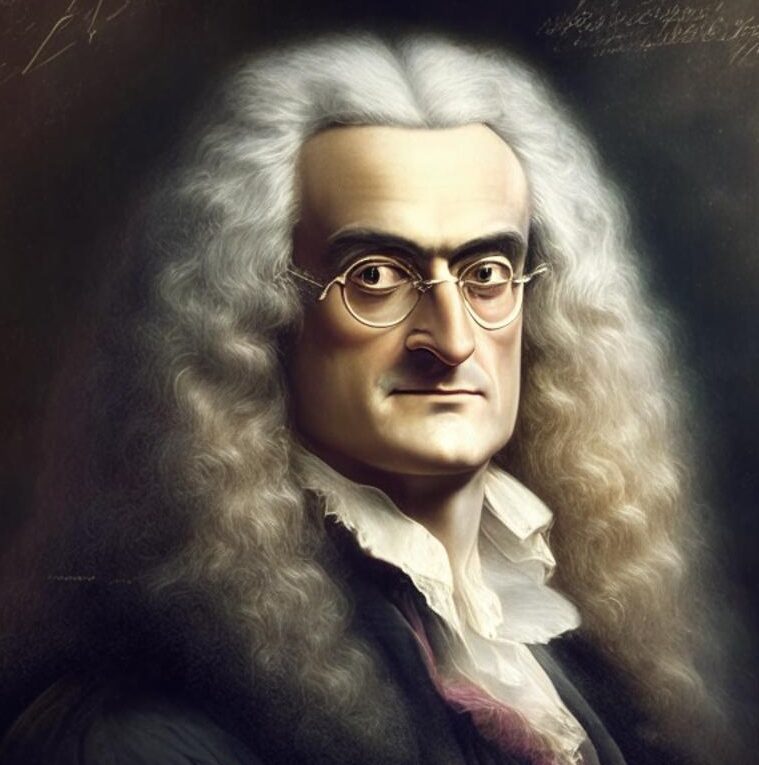Isaac Newton, Revolutionary Scientific Contributions

Sir Isaac Newton: Unraveling the Secrets of the Universe
Sir Isaac Newton, one of the greatest minds in the history of science, left an indelible mark on the world with his groundbreaking discoveries and revolutionary ideas. His contributions to mathematics, physics, and astronomy reshaped our understanding of the universe and laid the foundation for modern science. In this blog post, we will delve into the life and achievements of this remarkable scientist and explore how his genius forever changed the course of human knowledge.
Early Life and Education of Isaac Newton:
Isaac Newton was born on January 4, 1643, in Woolsthorpe, Lincolnshire, England. His father had died before his birth, and his mother remarried, leaving him in the care of his grandmother. From an early age, Newton showed an exceptional aptitude for learning and an insatiable curiosity about the natural world.
At the age of 18, Newton enrolled at Trinity College, Cambridge, where he immersed himself in the study of mathematics, physics, and astronomy. His brilliance quickly became evident, and he made significant contributions to these fields during his time at the university.
The Laws of Motion and Universal Gravitation:
Newton’s most renowned work came in the form of his laws of motion and the theory of universal gravitation. In 1687, he published his masterpiece, “Mathematical Principles of Natural Philosophy,” commonly known as the “Principia.” In this groundbreaking book, Newton outlined his three laws of motion, which laid the groundwork for classical mechanics.
His first law, often referred to as the law of inertia, states that an object at rest will remain at rest, and an object in motion will continue moving at a constant velocity unless acted upon by an external force. The second law relates the force exerted on an object to its mass and acceleration, while the third law states that for every action, there is an equal and opposite reaction.
Newton’s theory of universal gravitation was another monumental discovery. He proposed that every object in the universe attracts every other object with a force directly proportional to their masses and inversely proportional to the square of the distance between them. This theory explained the motions of celestial bodies and provided a mathematical framework to understand the workings of the cosmos.
Optics and Mathematics by Isaac Newton:
Apart from his contributions to physics, Newton also made significant advances in the field of optics. He conducted experiments with light and developed the theory that white light is composed of a spectrum of colors. His work on optics laid the foundation for modern theories of light and inspired further research by subsequent scientists.
Newton’s mathematical prowess was equally remarkable. He invented calculus independently of Leibniz, and his method of fluxions (now known as calculus) became an essential tool for solving complex mathematical problems. His work in mathematics greatly influenced the development of the field and set the stage for future mathematicians and physicists.
Legacy and Impact:
Isaac Newton’s impact on the scientific world cannot be overstated. His laws of motion and theory of universal gravitation unified the understanding of celestial and terrestrial phenomena and provided a new framework for scientific inquiry. Newton’s work formed the basis for classical physics and laid the groundwork for subsequent scientific revolutions, including Einstein’s theory of relativity.
Moreover, Newton’s emphasis on rigorous experimentation and mathematical rigor set new standards for scientific inquiry. His approach revolutionized the scientific method and paved the way for the systematic study of the natural world.
Conclusion (Isaac Newton):
Sir Isaac Newton’s contributions to science continue to inspire and influence scientists to this day. His laws of motion, theory of universal gravitation, and advancements in mathematics and optics transformed our understanding of the universe. Newton’s genius, insatiable curiosity, and dedication to the pursuit of knowledge have left an indelible mark on the world, forever shaping the way we comprehend the laws that govern our existence.











